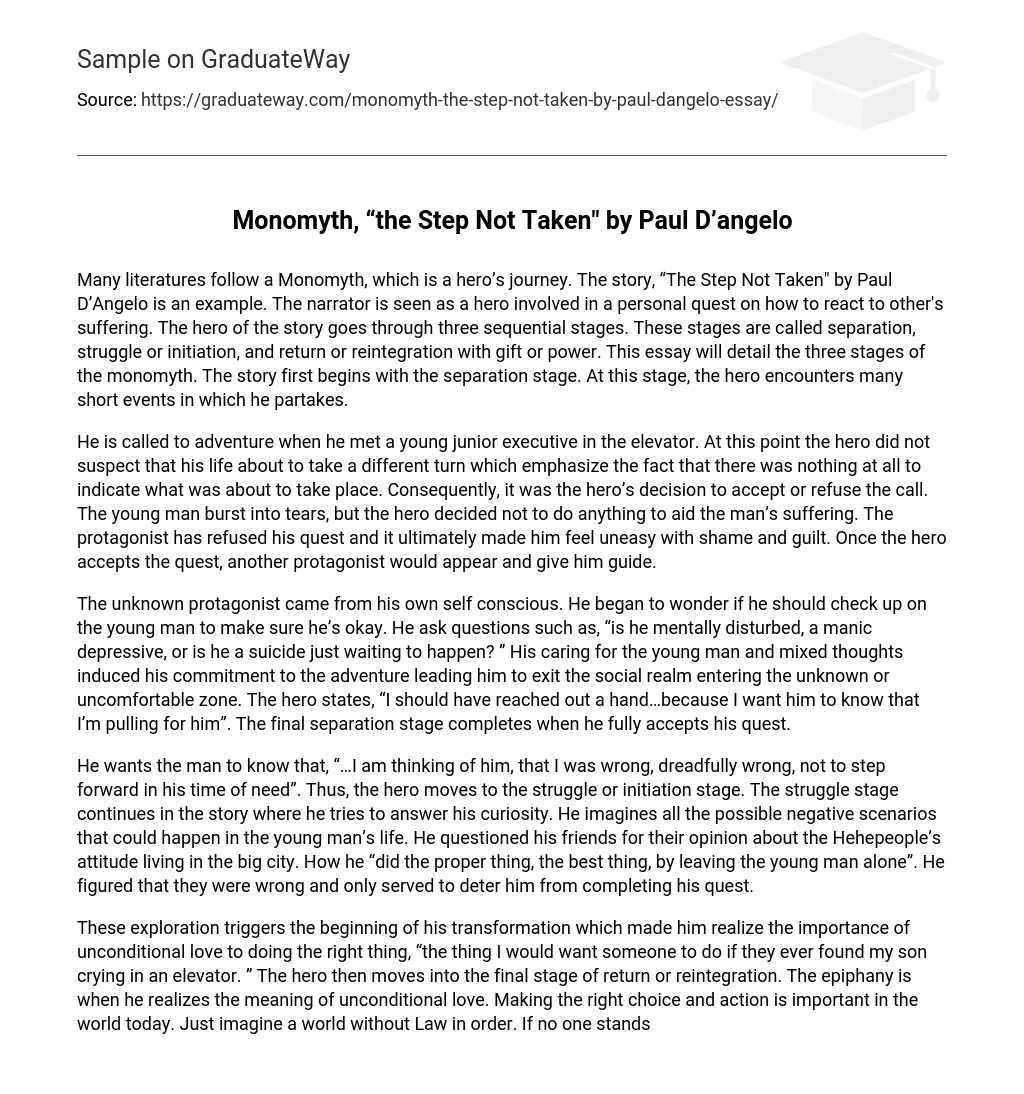Many literatures follow a Monomyth, which is a hero’s journey. “The Step Not Taken” by Paul D’Angelo exemplifies this concept. The narrator acts as the hero and embarks on a personal quest to determine how to respond to the suffering of others. Throughout the story, the hero progresses through three consecutive stages known as separation, struggle or initiation, and return or reintegration with a gift or power. This essay will elaborate on these three stages of the monomyth. The story initially commences with the separation stage, during which the hero encounters various brief events in which they participate.
The adventure is initiated by the hero’s encounter with a young junior executive in the elevator. Unaware of the impending change, the hero contemplates whether to accept or decline the call. The young man becomes emotional, but the hero chooses not to intervene. Rejecting the quest brings about a sense of unease, shame, and guilt for the protagonist. However, upon accepting the quest, a new guide emerges to assist him.
The protagonist’s lack of self-confidence prompts him to consider monitoring the well-being of the young man. He ponders whether the young man could be experiencing mental instability, bipolar disorder, or even contemplating ending his own life. The protagonist’s worry and conflicting thoughts compel him to embark on a journey that pushes him beyond his usual boundaries and into unfamiliar territory. The protagonist states, “I should have offered assistance… because I want him to understand that I am supporting him.” The ultimate phase of detachment arises when he wholeheartedly embraces his mission.
He desires the man to be aware that he is contemplating him, acknowledging that he made a terrible mistake by not intervening during his time of hardship. As a result, the protagonist progresses to the struggle or initiation phase. This stage of struggle continues in the narrative as he endeavors to satisfy his curiosity. He envisions various unfavorable scenarios that could unfold in the young man’s life. He consults his acquaintances for their perspectives on the Hehepeople’s behavior in the bustling city. The protagonist wonders whether he made the correct decision by refraining from intervening with the young man. Ultimately, he concludes that his acquaintances were mistaken and their advice only hindered him from accomplishing his quest.
These explorations signify the beginning of his transformation, guiding him to acknowledge the importance of unconditional love in making correct decisions — “the thing I would want someone to do if they ever found my son crying in an elevator.” This hero progresses towards the ultimate stage of return or reintegration. The moment of realization happens when he understands the genuine significance of unconditional love. In the present society, it is essential to make appropriate choices and engage in suitable actions. Envision a world devoid of law and order. In the absence of anyone championing for justice, peace would cease to exist.





